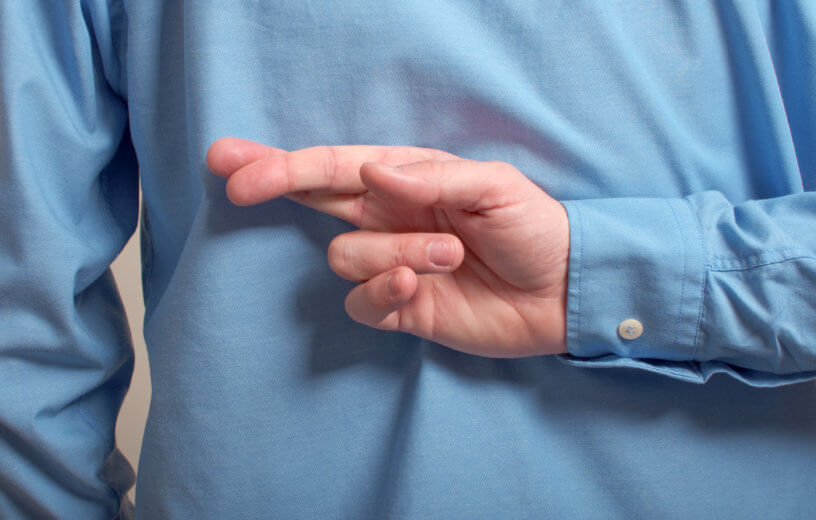PORTSMOUTH, England — Honesty is the best policy. Well, at least it’s supposed to be, but that doesn’t mean everyone is always completely transparent with the people in their life. In an effort to better understand the phenomenon of lying, researchers from the University of Portsmouth performed a study on the topic. They came to a number of interesting conclusions, and paramount among them was the finding that men are twice as likely as women to believe they are skilled at deception and the art of getting away with lies.
Additionally, according to head researcher Dr. Brianna Verigin, most skilled liars are very good talkers, and tend to tell more lies than other people. Essentially, once someone figures out they are good at lying, they usually end up doing it a whole lot more. In the majority of cases, these lies are told to close family members, friends, and colleagues, while employers and authority figures were identified as the groups least likely to be told a lie.
“We found a significant link between expertise at lying and gender. Men were more than twice as likely to consider themselves expert liars who got away with it,” Dr. Verigin explains in a release. “Previous research has shown that most people tell one-two lies per day, but that’s not accurate, most people don’t lie everyday; but a small number of prolific liars are responsible for the majority of lies reported.”
“What stood out in our study was that nearly half (40 per cent) of all lies are told by a very small number of deceivers. And these people will lie with impunity to those closest to them,” She adds.
Perhaps surprisingly, the study also found that most skilled liars actually prefer doing the deed in person, and avoid lying over text message or social media.
“Prolific liars rely on a great deal on being good with words, weaving their lies into truths, so it becomes hard for others to distinguish the difference, and they’re also better than most at hiding lies within apparently simple, clear stories which are harder for others to doubt,” she explains.
For the research portion of the study, a group of 194 people (half male, half female) with an average age of 39 were gathered together. Each participant was asked various questions on how adept they believed themselves to be at lying, and the number of lies they had told over the previous 24 hours. If the participant had lied within the prior day, they were also asked about the lie, who it was told to, and whether it was told face-to-face or electronically.
Researchers noted that a prevalent strategy among skilled liars is to tell lies that are close to the truth and sound plausible, while simultaneously giving away as little information as possible. In fact, among both seasoned and more novice liars, withholding information was identified as the most commonly used deceptive strategy. However, expert liars are usually much more capable of formulating a believable, yet ultimately false, story by incorporating elements of the truth. Meanwhile, poorer liars are usually extra vague with their lies, making the deception easier to pick up on.
“Time after time, studies have shown we are not as good at detecting lies as we think we are. At best, most of us have a 50:50 chance of getting it right when someone is pulling the wool over our eyes,” Dr. Verigin comments. “We wanted to focus on those who are good at lying and try to understand how they do it and to whom.”
Among all 194 participants, the most common form of lying was identified as relatively small “white lies,” followed by exaggerations, simply withholding certain facts, burying some lies in mostly true statements, and flat out making stories up.
Also, for what it’s worth, the study found no connection between an individual’s level of education and subsequent likelihood of lying.
The study is published in the scientific journal PLOS One.
